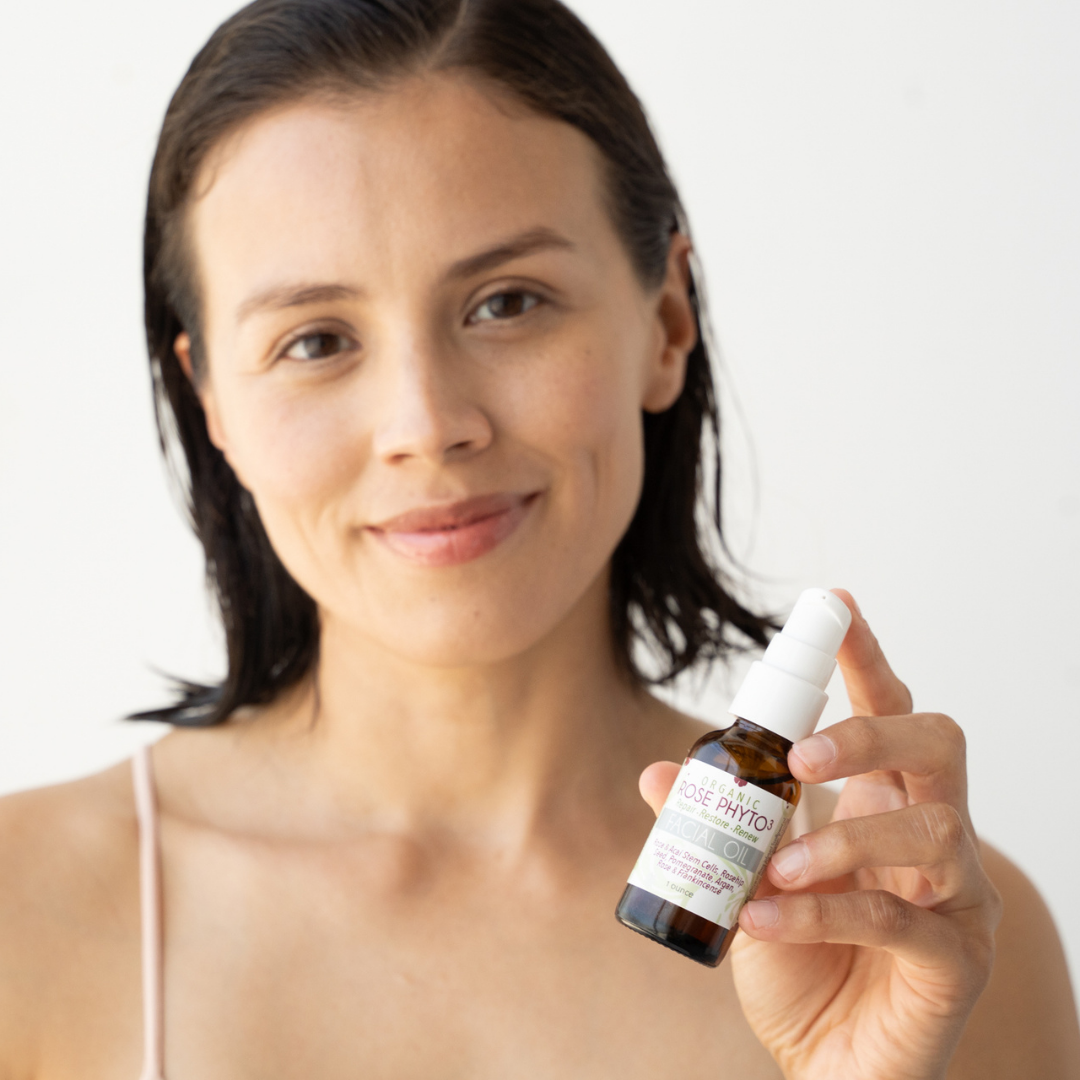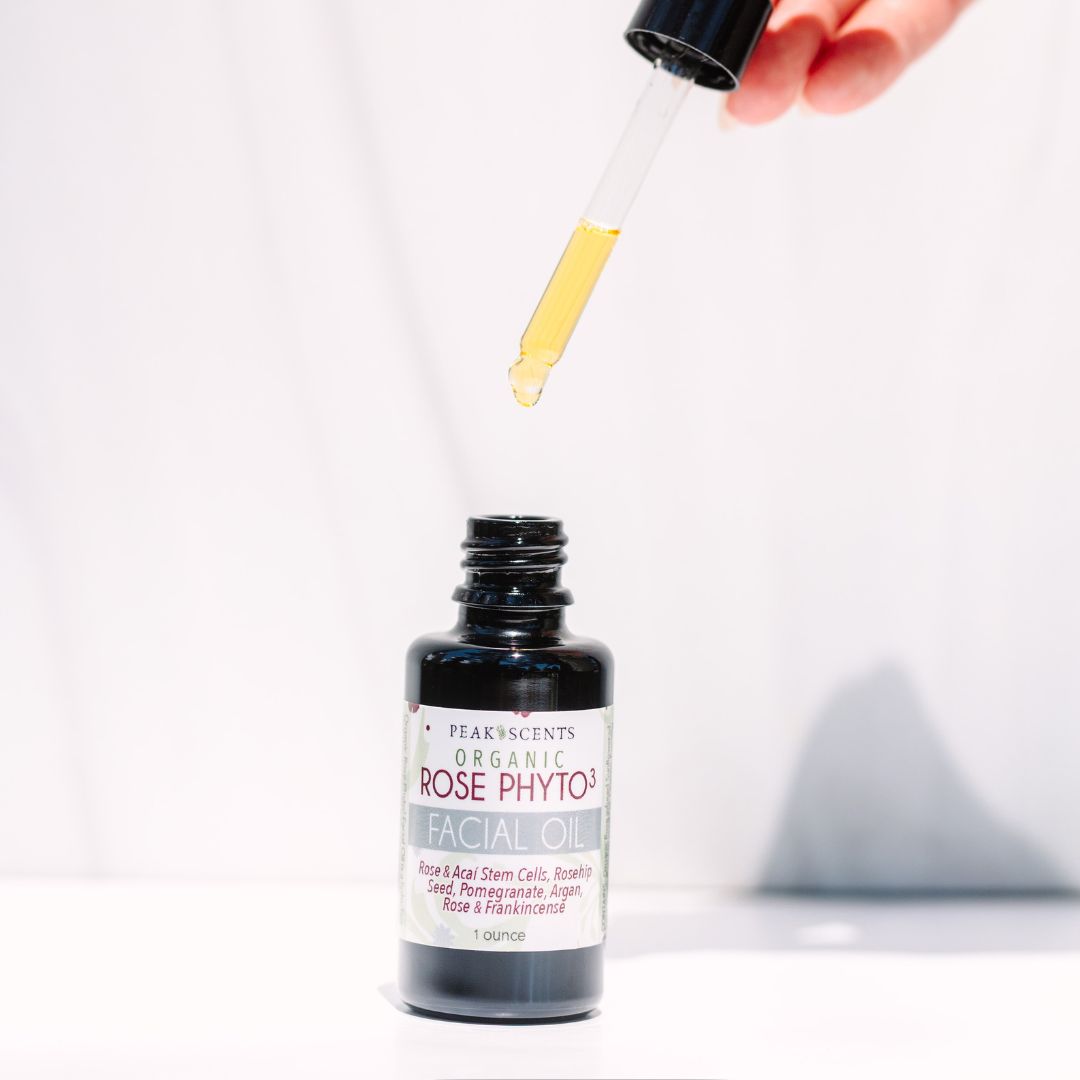So, you're wondering why you should be using facial oils...here's the lowdown:
It may seem counterintuitive to use an oil in your skincare routine, especially if you have oily to combination skin, however, we are here to help you understand why oil makes a difference for all skin types and why you'll be amazed with the results after you try one.
There are two types of oils you need to know about: carrier oils and essential oils.They work best when combined. Carrier oils are usually cold-pressed from fruits and nuts like rosehip seed or argan oil. Essential oils are made by steaming or pressing different parts of a plant (flowers, bark, leaves, or fruit) to capture the compounds that produce fragrance. It can take several pounds of a plant to produce a single bottle of essential oil.
+All oils are Lipophilic
Which means they can penetrated deep into your skin, keeping water and other moisturizing goodness in, and, at the same time, keeping toxins and other bad stuff out.
+All oils are Hydrophobic
This means that they’ll help keep water from escaping. That's really good news because it means your skin is going to stay hydrated!

Oils help hold water in and prevent the environment from taking moisture out!
Many people have dry skin because their skin doesn't produce enough oil naturally to keep the outer layer of their skin hydrated.
As we head into the fall and winter months, dry skin can be a real problem.Your skin is made up of lipids which are responsible for preventing dehydration, retaining moisture, and keeping toxins out. Unfortunately, as we age, we produce fewer oils that compose this layer. So, applying oils to your skin becomes necessary. And, because they have a high concentration of oxygen they quickly pass through the skin's lipid barrier to prevent water loss and plump it with active ingredients more effectively.
Dry skin needs oils rich in omegas and fatty acids like grape seed, avocado, sunflower, Vitamin E, and jojoba.
Avocado is high in Vitamin E and sterolin, which softens the skin and protects from free radicals. It's also rich in lecithin, a lipid that helps deliver nutrients directly to the deeper layers of the skin.
Rose oil actively promotes and retains your skin's natural moisture levels. This is due to its high levels of Vitamin A, which help to increase collagen production, and Omega's 3 and 6, which strengthen your lipid barrier
Many oils have anti-inflammatory properties as well, like jojoba and argan, which helps quell irritated skin. Geranium oil is also fabulous at reducing redness from rosacea.

The right oil can actually help balance oil production and kick acne to the curb.
If the thought of putting oils on your face brings really bad breakouts to mind think again, The right oil helps balance oil production!
Using jojoba, argan, and green tea oil in moderation can actually reduce oil production, making it a great addition to your topical acne regimen. Jojoba oils molecular structure resembles that of your skin, so it can deliver nutrients subdermally. It’s also able to trick your skin into thinking it has produced enough oil.
Too much unprotected ultraviolet light is a set-up for free radical damage — and that means wrinkles and sunspots galore. Use an oil boosted with herbs and antioxidants to prevent sun damage while boosting hydration.
At Peak Scents, our facial oils are packed with antioxidants, which prevent further aging, if you're affected by sun damage and dryness, or to balance oily/acne prone skin our Rose Phyto3 or Power Repair Skin Therapy Oil are great choices.

Just keep in mind that a small amount of the right product goes a long way.
Too much of anything is never a good idea. It’s all about balance and finding it for your skin.
Once you add facial oils to your beauty routine, you’ll find that they feel incredibly luxurious and indulgent. You should feel the difference almost immediately and you’ll wonder how you ever got along without them.
Try our best selling oils and see the results for yourself!

